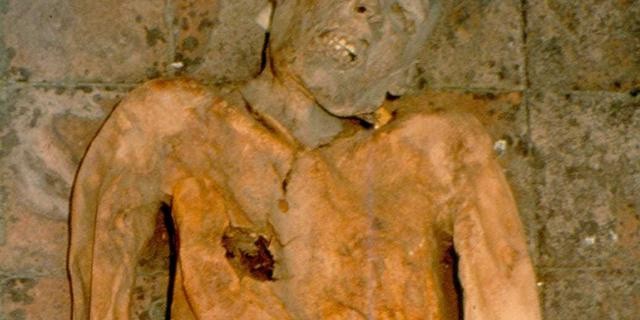Escherichia coli or E.coli is a bacteria primarily used in biological research. It was first discovered in the 19th century, but up until now, our knowledge about its evolution is still limited.
Bacteria Preserved in Remains of Renaissance Gallstone Patient

In a recent investigation, scientists extracted the genetic code of E. coli from a 400-year-old mummified individual. This is the first-ever research that obtained the pathogen's sample from ancient times.
The authors said the remains are from an Italian nobleman who lived through the Renaissance. The body belonged to a larger collection of well-preserved bodies unearthed in the city of Naples, Italy, back in 1983.
The man that contained the pathogen was identified as Giovani d'Avalos. Science Daily reports that this person died in 1586 at the age of 48; experts theorize that the cause of the nobleman's death was related to gallstones, particularly bile infection such as chronic gallbladder inflammation.
Université Paris Cité and Hôpital Bichat specialist Erick Denamur, who also co-authored the study, explained that it was surprising that they found such an ancient E. coli in this age.
Even though the pathogen was unique in features, the bacteria has evolutionary data that is close to the gallstone-causing bacteria that still exists today.
Contrary to popular belief, not all E. coli strains are harmful. Most of them do not cause any infections on a host, but some could induce severe infections and illness in humans.
ALSO READ : Seals Discovered Using Whiskers for Sensors and Hunting Preys Under Deep Oceans for the First Time
Evolutionary History of E. Coli and Other Pathogens
Compared to other casual illnesses detected in some seasons, the symptoms of an E.coli infection are exclusive to our gut. The effects of the bacteria are hidden in our stomachs compared to smallpox, which commonly manifests through the external parts of the body.
McMaster University biology, biochemistry, and anthropology expert George Long, who served as lead author of the study, said in a EurekAlert report that they could not detect the presence of E. coli from the man as evidence did not surface during the first few analyses of his remains.
Long believes that the data they constructed through the obtained details from the pathogen and the functions of the genome could serve as a guideline and help other researchers that work on hidden and unknown pathogens.
By comparing the ancient genome of the E. coli kept in the body of an ancient Italian nobleman and records of modern strains, Long's team expects that there will be other studies associated with the evolution of bacteria that will branch out in the future reports Insider.
The research was presented through the collaboration of the University of Paris, the /French Institute of Medical Research (INSERM), and the Canadian Institute of Advanced Research.
The study was published in Communications Biology, titled "A 16th century Escherichia coli draft genome associated with an opportunistic bile infection."
Check out more news and information on Biology in Science Times.
© 2026 ScienceTimes.com All rights reserved. Do not reproduce without permission. The window to the world of Science Times.











